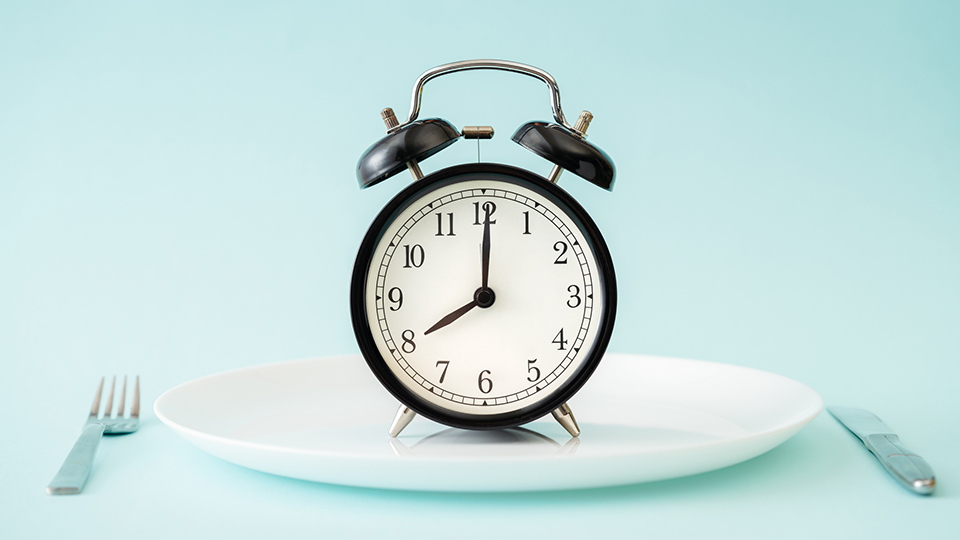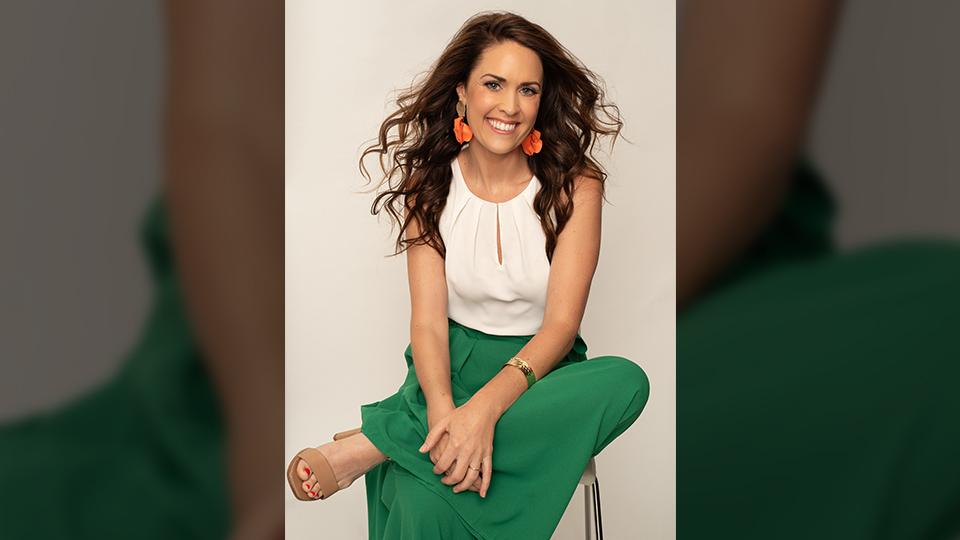Why fasting is doing women more harm than good, according to a nutritionist
Emma Lennon | July 14, 2025

There’s no escaping it – our society has an obsession with dieting and weight loss. From an increasingly young age, girls are bombarded with narrow, Western-centric beauty standards of youth and leanness.
Despite increased access to information about the importance of embracing body diversity, more than one in four Australians started a new diet last year, and more people planned to attempt drastic weight loss measures in 2025 compared to previous years.
Intermittent fasting is one of the most popular dieting approaches among Gen X and Z, with about 15 per cent of Australians hoping it will help them reach their weight loss goals, thanks to its growing online popularity as a ‘secret hack’ to achieving their dream body.
However, the research on intermittent fasting is mixed; some studies indicate it can be a safe and effective weight loss method, while others found it can increase the risk of heart disease and premature death.
Sponsored
Life in the fast lane: fitness fad or longevity life hack?
Sammy Barnett, clinical nutritionist and owner of Nutrition with Sammy, explained that fasting is nothing new – it has ancient spiritual, cultural, and medical origins across many diverse cultures. But like many fads in the wellness industry, fasting has mutated into a competitive, image-centric lifestyle that disconnects people from their body’s needs and wisdom.
“They call it ‘intermittent fasting’ but in many cases, it is just burnout, anxiety, and people trying to convince themselves that not eating for long periods is a ‘healthy’ lifestyle choice,” said Barnett, who overcame orthorexia and has worked with many women battling poor relationships with food and their body image.
Barnett said that while fasting is associated with mental clarity, spiritual discipline, and longevity in some contexts, it doesn’t necessarily make sense in our modern, Western world, characterised by hustle culture.
“We’re trying to fast like monks while living life in the fast lane,” Barnett said.
The key difference, Barnett believes, is that many women today are fasting from profound disconnection from their body, their hunger cues, and a healthy, shame-free relationship with food.
“Fasting gives them a sense of control, especially in a world where life feels anything but,” she said.
While some people may enjoy the simplification of fewer food decisions to make in a day, in many cases, Barnett sees the true reason for fasting as a distrust of their ability to manage their eating habits, and a desire to shrink themselves physically at any cost.
“When did it become so complicated?” she asked. “Probably the same time we decided our bodies were a problem to fix instead of something to listen to.”
To eat or not to eat: weighing the pros and cons of fasting
One of the key supposed benefits of intermittent fasting relates to longevity, through a process known as cell autophagy. Autophagy happens when cells are under stress, including nutrient deprivation. The word translates to ‘self-eating’, derived from the Greek words ‘auto’ (self) and ‘phagy’ (eating). This process allows cells to break down, recycle, or eliminate damaged or unnecessary components – a kind of cellular ‘deep cleaning’.
“But imagine trying to deep clean while hosting a party, checking emails, and carrying the mental load of many unfinished tasks,” Barnett said.
“That’s what fasting in a stressful Western lifestyle feels like for your cells. Your body thinks it’s running away from a tiger while you’re trying to cleanse it. It’s too busy trying to keep you alive.”
The idea that by fasting you can somehow ‘biohack’ your way to longevity is another way modern wellness culture ignores the broader cultural and societal context that is so integral to overall wellbeing, leading us to feel more lost and confused about our health than ever.
We shouldn’t be forcing our bodies to go hours without food, nor should we be constantly grazing throughout the day, explained Barnett. This is because any time we consume food, we are disrupting a digestive mechanism known as the Migratory Motor Complex (MMC).
“This is the street sweeper that runs through your digestive tract between meals, cleaning up leftover bits and bacteria buildup, but it only activates when we’re not eating,” she said.
Neither extreme when it comes to meal frequency is ideal – we don’t need to eat every hour on the hour, but we shouldn’t be striving to eat as infrequently as possible either. Striking a balance that works for you and is sustainable and enjoyable is what matters, not finding some magical meal schedule that optimises you to superhuman levels.
“We’ve become obsessed with hacking everything. Our steps, our sleep, our supplements,” Barnett said.
“Fasting has just become another thing to ‘optimise’, rather than a tool to honour. Your body isn’t an app. It’s not about the latest protocol or what worked for John. It’s about whether your body is safe, nourished and calm enough to benefit from the fasting in the first place.”

Clinical nutritionist Sammy Barnett.
Not so fast, ladies: The hormonal risks of fasting for women
Barnett said that fasting can have drastically different impacts on men and women, despite science and wellness marketing often treating us identically.
“A lot of research into the benefits of fasting has been done on men or animals. Why? Men are easier to study. They don’t have hormonal fluctuations, cyclic patterns, or potential for pregnancy,” she said.
Barnett said that the tendency for science to treat women as ‘small men’ and ignore our hormonal complexity is misleading and often harmful. Women’s cortisol, insulin and hunger cues shift dramatically throughout our 28-day cycle, and are also greatly impacted by stress.
“If you then fast on top of that, your blood sugar can crash, your hormones can spike, and your nervous system goes into overdrive,” she said.
“I have seen fasting appear to work for women at first, especially in terms of weight loss, appetite control, or even mental clarity and energy. But over time, the cracks do show in many cases.”
Many of Barnett’s female clients experience fasting side effects like low energy, disrupted sleep, poor recovery, hormonal imbalances, low iron, and even thyroid dysfunction. While men may thrive from a fasting protocol, women end up exhausted and frustrated, blaming themselves for ‘failing’ at an approach that was never suitable for them in the first place.
Barnett also explained that women are biologically designed to carry more body fat than men. Fat stores are protective and play a crucial role in hormone production, such as oestrogen.
“When women drop too much body fat too quickly, especially from aggressive fasting and under-eating, it’s not just the fat that disappears. We see a drop in oestrogen, a dip in mood, and often muscle loss too.”
Over time, oestrogen deficiencies can wreak havoc on your energy, your cardiovascular health, and even your bone density.
Moving from restriction to honouring your body’s natural rhythm
Barnett’s goal isn’t to scaremonger any women out there who enjoy fasting, but to support those who feel confused about how to navigate their food choices.
“If it’s working for you, if your body feels energised, nourished and truly well, I’m not here to take that away,” she said.
“My message isn’t that fasting is wrong. It’s that it’s not a one-size-fits-all.”
Barnett is a firm believer that our bodies tell us what they need when we can quiet the noise long enough to listen and trust.
“In most cases, a gentle 12-13 hour fast between dinner and breakfast is more than enough for the body to reset, repair, and rebalance,” she said.
This fasting window gives you all the benefits of autophagy and a digestive clean out, without adding the stress of prolonged starvation.
Barnett’s advice to women who feel anxious about eating breakfast or extending their eating window is to gently inquire about where the fear is coming from – are you concerned for your health or afraid of losing control?
Rather than focusing on how to eat as little as possible, ask yourself what would feel most nourishing and supportive to your body.
“Your health is not defined by the size of your body. It’s defined by your energy, your sleep, your mood, your cycles, and your joy,” Barnett said.
“Fasting can be a supportive tool but should never feel like punishment. If it’s making you anxious, exhausted or disconnected from your body, it’s not the right tool right now. That doesn’t mean you’ve failed. It means your body is wise.”
“And sometimes, the most nourishing thing you can do is breathe and eat the damn breakfast!”
Sponsored
We have a request
SHE DEFINED’s journalism is independent and we’re committed to elevating the voices of women by putting them front-and-centre in our stories and giving them a platform to speak up.
Quality journalism and editorial content takes time, money and resources to create, which is why your support matters. We don’t have a paywall or exclusive subscriptions because we believe in keeping our stories open to everyone.
Help support our mission by making a financial contribution today.

Emma Lennon
Emma Lennon is a passionate writer, editor and community development professional. With over ten years’ experience in the disability, health and advocacy sectors, Emma is dedicated to creating work that highlights important social issues.






